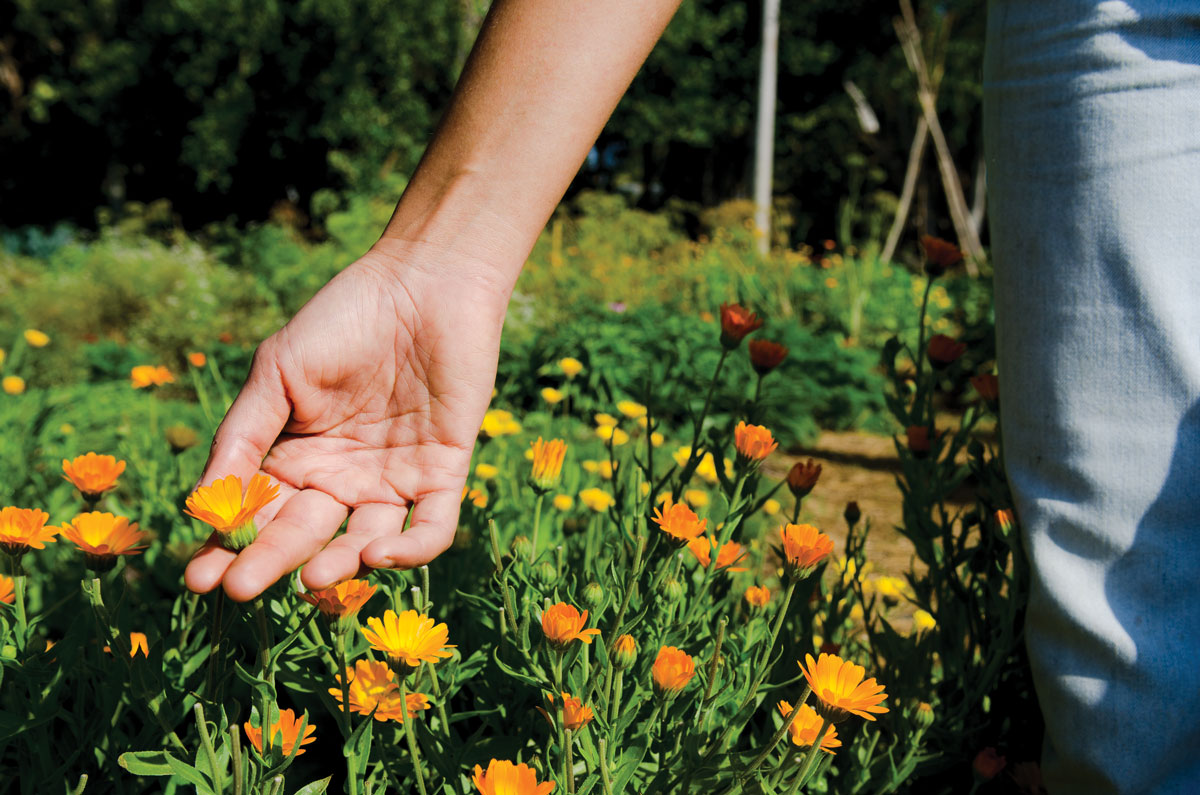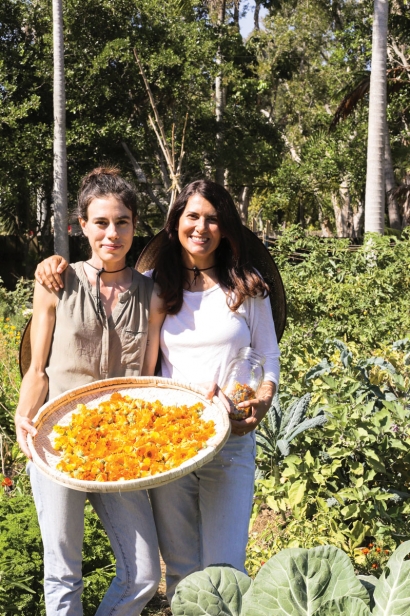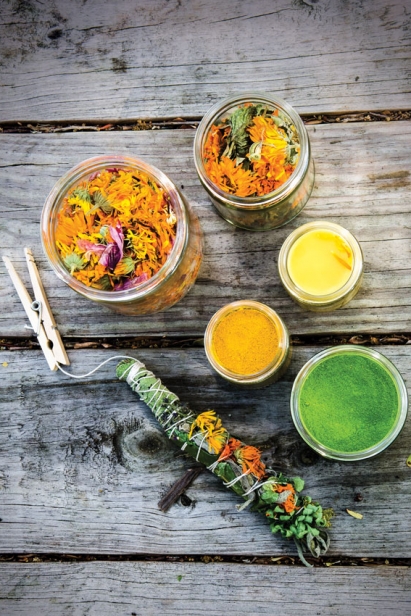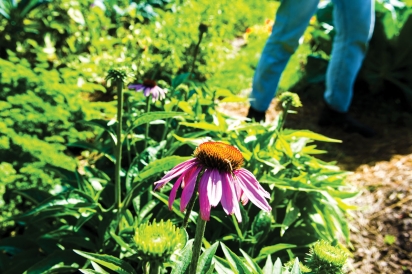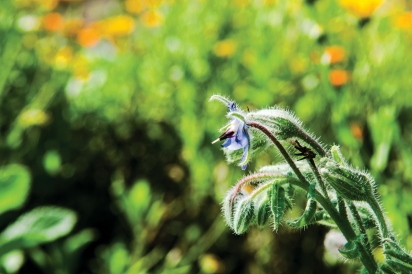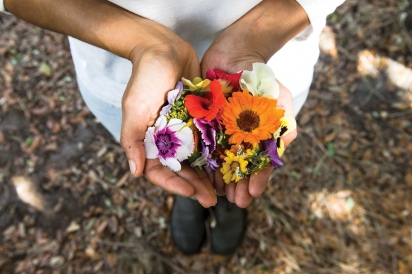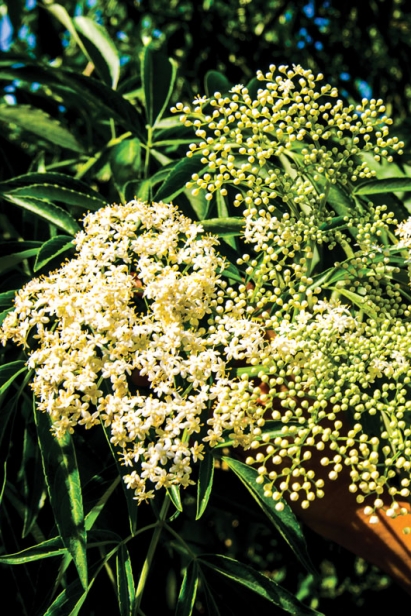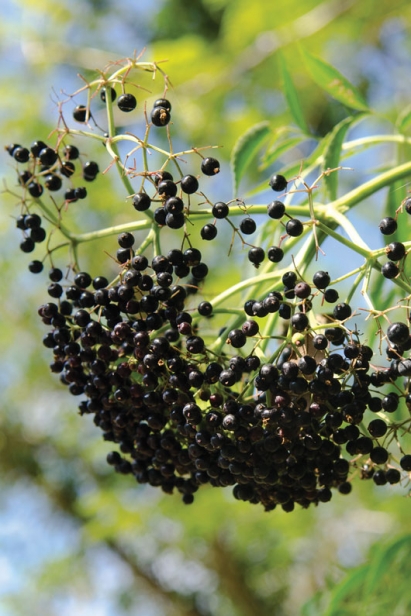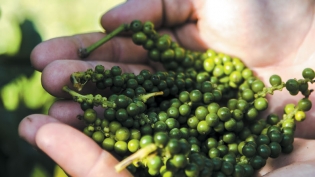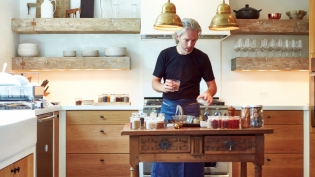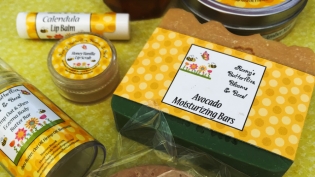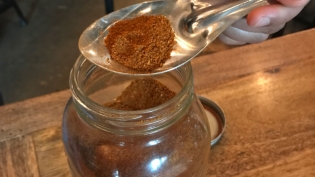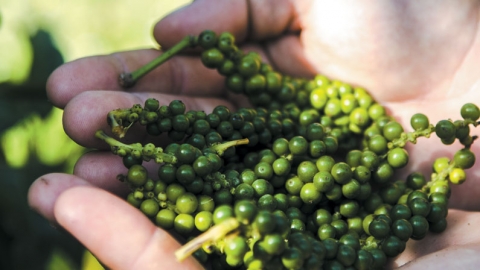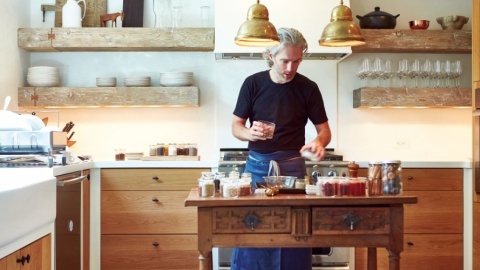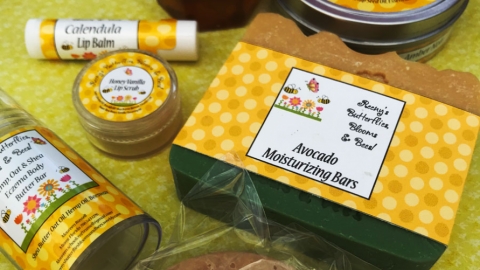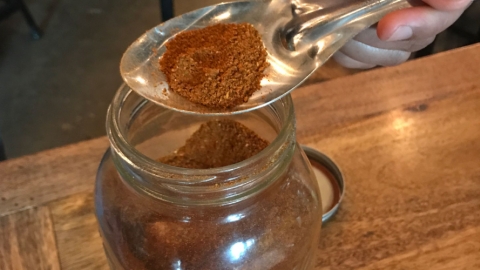Mother Earth Miami: Community Supported Herbalists
Katia Bechara and Gabi Serra have carved out a tender, nostalgic niche in South Florida’s young urban farming scene. As partners in Mother Earth Miami, they grow vegetables, herbs and edible flowers for the community and local chefs. They’ve also introduced a community-supported herbalist program for products made from local herbs, spices, fruits, flowers, roots and vegetables – syrups, salves, powders, teas and other items. “As part of our journey as farmers, our mission is to experiment, discover and expand our knowledge of native and tropical plants that have medicinal and nutritional properties,” they say.
The two met at Little River Cooperative’s urban farm in North Miami. Bechara, who lives in Miami Shores, already had experience in the food industry. After attending Florida State University’s hospitality program, she returned to Miami to work at The Setai and Casa Tua. She moved to Napa Valley and got a job at The French Laundry and met her husband, then moved back to Miami and worked as a wine rep. Still, she longed for the opportunity to grow food.
“My great grandma was a farmer and dad was an arborist,” Bechara says. “I wanted to meet farmers.” She took advantage of a grant for vets and minority farmers to set up a business, Mother Earth, and got to know Margie Pikarsky of Bee Heaven, Robert Barnum of Possum Trot and Gabriele Marewski of Paradise Farms. She discovered Little River where she volunteered on weekends, and applied her knowledge to transform her Miami Shores backyard into a lush food garden with heirloom tomatoes, cucumbers, spinach and kale, pineapple, Seminole pumpkin, boniato, herbs and peppers.
Meanwhile, Gabi Serra followed a similar path of volunteering at local farms when she wasn’t working her day job at a production company. Originally from Venezuela, Serra worked at Gardens of Troy, an urban farm project at an alternative high school. She met Little River Cooperative farmer Muriel Olivares. “I grew up with nature,” she says. “I realized simple things make me happy.” Serra joined her sister in starting a skincare company, Alma, that uses organic products locally sourced when possible.
Serra and Bechara signed up for Little River Cooperative’s Farm Incubator Program, where aspiring farmers gain knowledge, a plot of land and mentorship on an urban farm. “Gabi was my neighbor at the incubator,” says Bechara. “We got the tools to work on the farm, classes and workshops to teach you to farm, all about marketing strategies.” They realized they shared an interest in rescuing traditions, using medicinal plants in infusions, decoctions, tinctures, poultices and powders and creating an herbal apothecary and decided to team up.
As Mother Earth Miami, they launched an online shop, set up herbalism shares of products created from what they grew, and grew specialty crops to sell to local chefs and the community. “We learned not to put all our eggs in one basket,” says Bechara. In February, the two attended the Florida Herbalist Conference where they saw how people are interested in preserving native and tropical herbs. “It also made us nostalgic for our childhood while listening to the stories of things our grandmothers would do for us. This made us reflect on our lives and our relationships with our elders – and the responsibility to build a better world for those who come after us.”
Mother Earth Miami scheduled two spring workshops on herbalism and tropical medicinal plants at the farm, both of which sold out. “It’s the perfect example of how we had hoped the incubators and Little River Coop would be growing together, partnering on cool new stuff and involving the community,” says Tiffany Noé of Little River.
For Mother Earth Miami, this looks like the beginning of a journey into the future but rooted in the traditions of the past. “We’ve met inspirational people, connected with the community,” says Serra. “We give love and thoughtfulness to what we do. I love this project.”
What’s in a CSH?
Like a community-supported agriculture (CSA) program, CSH supporters buy shares and get deliveries of products made from the farm. Mother Earth Miami offers four seasonal pickups or deliveries, each showcasing a local farmer, beekeeper or craft maker’s product. Some items featured in the large spring share include:
Turmeric dyed bulk bag – These cotton bags were made from thrift-shop cotton sheets, dyed using organic turmeric from Cool Runnings Farm in Homestead.
Tessa’s honey – While Hurricane Irma had an impact on her honey flow, the bees recovered and were foraging among the avocado, mango and lychee trees in Homestead.
Elderberry syrup – Made from elderberries and elderflowers from the farm, thyme and wild Cuban oregano, and organic ginger.
Turmeric powder – Harvested from Cool Runnings in the Redland and made into powder.
Salve Made from calendula, Spanish needle and comfrey harvested on the farm, and Tessa’s beeswax.
Smudge stick – A gift for their first members, this bundle of allspice leaves, calendula flowers, rosemary, sage and dill blossoms is burned in a ceremony practiced by some indigenous peoples in the Americas.
Moringa powder – Harvested from leaves that are dehydrated and ground.
Spring tea – Their blend includes moringa flowers, lemon verbena, catnip, turmeric, calendula flowers, allspice and stevia leaf and flowers.
Spring bath – This blend contains jasmine, hibiscus, ancient salt and calendula oil and flowers.
Find out more about Mother Earth Miami online at motherearthmiami.com.


